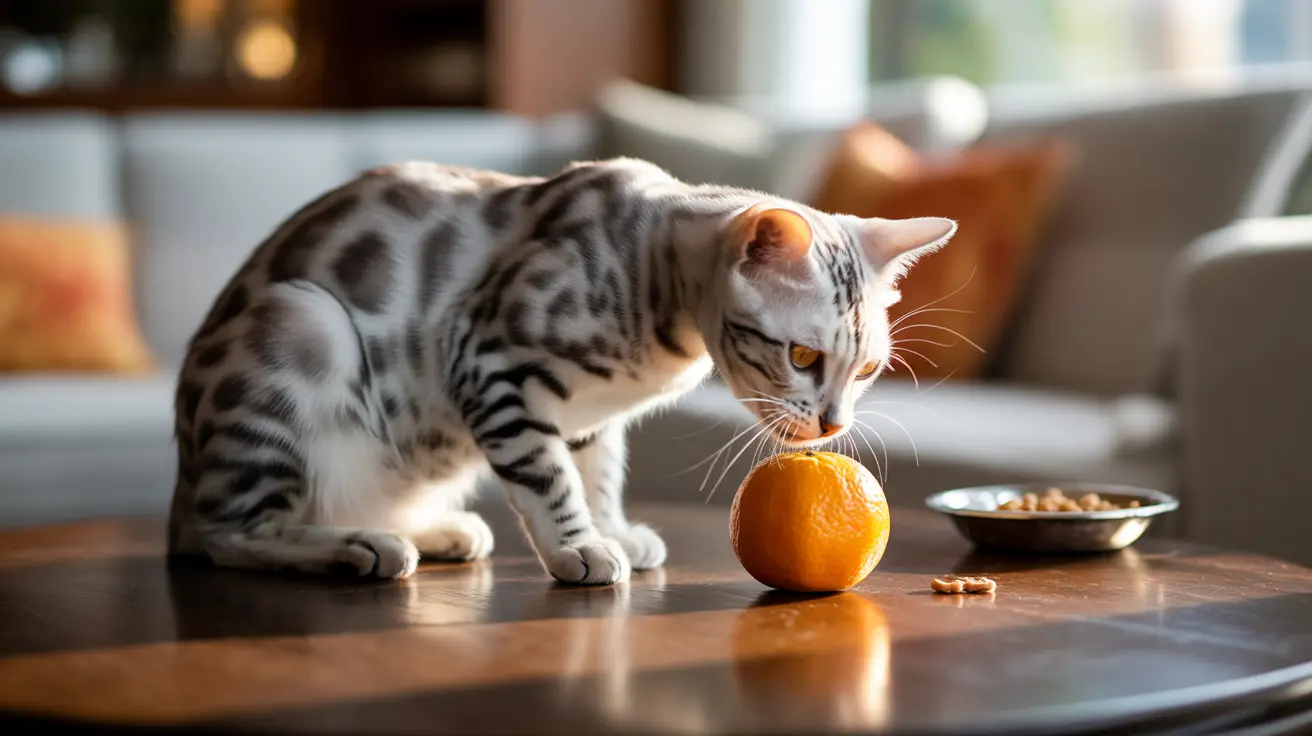Cats are remarkable creatures with an extraordinary sense of smell that far surpasses human capabilities. With up to 200 million olfactory receptors compared to our mere 5 million, cats experience their world primarily through scent. Understanding which smells cats hate isn't just fascinating—it's essential knowledge for every cat owner and can be vital for creating a comfortable environment for your feline friend.
In this comprehensive guide, we'll explore the various scents that cats typically avoid, why they react this way, and how to use this knowledge safely in your home. We'll also discuss which common household items might be causing your cat unnecessary stress through their powerful aromas.
Understanding Your Cat's Sensitive Nose
Before diving into specific scents, it's crucial to understand just how powerful a cat's sense of smell truly is. Their olfactory system is approximately 14 times more sensitive than humans, and they possess a special organ called the vomeronasal (or Jacobson's) organ that allows them to "taste-smell" their environment. This extraordinary sensitivity means that scents we find mild might be overwhelming for our feline companions.
Common Scents That Repel Cats
Citrus and Fruit-Based Smells
Cats have a strong aversion to citrus scents, including oranges, lemons, limes, and grapefruits. This natural aversion isn't just a preference—citrus oils can be toxic to cats, and their instincts tell them to stay away. Similarly, many cats show a distinct dislike for banana scents due to the ethyl acetate compound present in the peel.
Herbs and Spices
- Lavender
- Rosemary
- Mint
- Thyme
- Cayenne pepper
- Mustard
Essential Oils and Strong Artificial Fragrances
Essential oils are particularly problematic for cats. Many popular varieties, including eucalyptus, tea tree, and peppermint oils, are not only unpleasant for cats but can be toxic. This extends to artificial fragrances in:
- Air fresheners
- Scented candles
- Cleaning products
- Perfumes
Household Items That May Stress Your Cat
Several common household items can create unpleasant experiences for your cat through their strong smells:
Cleaning Products and Chemicals
- Vinegar
- Bleach
- Ammonia
- Commercial cleaning solutions
Food-Related Odors
- Coffee grounds
- Onions and garlic
- Strong spices
- Citrus peels
Safe Ways to Use Scent Deterrents
When using scents to modify your cat's behavior, always prioritize safety over effectiveness. Consider these guidelines:
- Use natural deterrents like citrus peels (kept out of reach)
- Dilute vinegar solutions for cleaning
- Choose unscented or pet-safe cleaning products
- Maintain good ventilation when using any strong-smelling products
Frequently Asked Questions
What smells do cats hate the most and why?
Cats most strongly detest citrus, essential oils, and strong spices. This aversion is often linked to the potential toxicity of these substances and their naturally overwhelming scent to cats' sensitive noses.
Are household cleaners and air fresheners safe for use around cats?
Many household cleaners and air fresheners contain chemicals that can be harmful to cats. Always use pet-safe products, ensure good ventilation, and keep cats away from freshly cleaned areas until surfaces are completely dry.
How can I safely use scents to keep cats away from certain areas in my home or garden?
Use natural deterrents like diluted vinegar or citrus peels (kept out of reach). Avoid essential oils or chemical deterrents, as these can be harmful. Always test in small areas first and monitor your cat's reaction.
Why do cats react so strongly to citrus and essential oils?
Cats have evolved to detect potentially toxic substances through smell. Both citrus and essential oils contain compounds that can be harmful to cats, which explains their natural aversion to these scents.
Can cats get sick from exposure to smells they dislike, and what are the warning signs?
Yes, exposure to certain strong smells can make cats sick. Watch for signs including:
- Excessive drooling
- Respiratory difficulties
- Sneezing or coughing
- Lethargy
- Vomiting
If you notice any of these symptoms, remove your cat from the scent source and consult a veterinarian.






